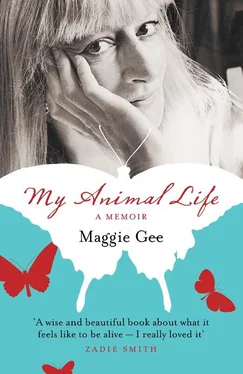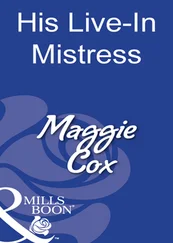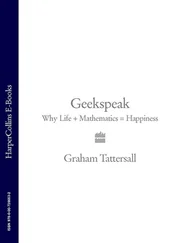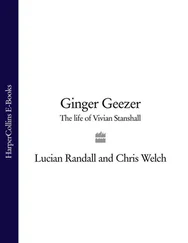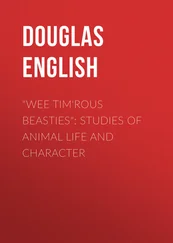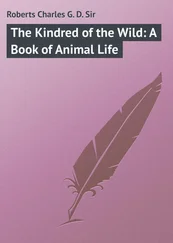What kind of country, what kind of family, might produce racists like the five white thugs? This was what I needed to write about. What did it say about my city? For I had become a Londoner, and Stephen Lawrence was one of our own. But so were the thugs, the murderers.
In Kensal Rise, the subject was everywhere. I heard the things said by the white workmen who came to the flat; they weren’t middle-class, and hadn’t learned to hide it. They seemed to particularly hate Indians, who they were afraid were after their jobs, but they didn’t like Africans and Caribbeans either. The reasons were many: ‘they don’t pay’; ‘you can’t trust them’. Yet for the first time in my life I was living in a world where there were equal numbers of black and white, which in many ways stifled prejudice, for it was simply too tiring to keep noticing colour; there were many families with biracial children, often strikingly beautiful, especially when young, with wild blonde curls and deep cupid’s-bow lips, a new perfection born from difference. Clearly, in many cases, all around me sex and love were overcoming prejudice. But in other ways, there were still two parallel worlds. I saw how people tended not to see one another. How white people turned to white people to ask for directions, or information, and vice versa. How black people looked surprised to be talked to. As a person and as a novelist, it was impossible not to notice (I think we have come some way since then.) Then I made a friend, Hanna Sakyi, who rapidly became important to me. It began as a convenience relationship, for she started an after-school club at Rosa’s school, but I quickly saw how special Hanna was. Rosa loved her at once, and still does. She was Ghanaian, and very black, but then, everything about Hanna was ‘very’. She was very funny, and very sharp, and had a laugh that rolled around a room, and strong self-possession, a sense of herself that made people sit up and take notice; she was very big, and very beautiful, with soulful dark eyes, high cheekbones, dimples, full lips, a short curving upper lip that made her look youthful, and small snowy teeth with a kissing gap. She came to tea, she came to supper. We began talking, and never stopped. At first the one thing we didn’t mention was that she was black and I was white. These taboos are strong, and our fears are great. Then one day we started talking about it, and talked about it, for a while, a lot; after which we got over it, mostly forgot it, and went on with being friends as normal. When Rosa was baptised, aged ten, Hanna was one of her three godmothers, and Nick and I are godparents to her son Robbie. I have other black friends, some of them writers, but Hanna gave me courage to write the book.
I wanted to write about the Britain I loved, my sense of which stretched back to the ’50s. It was my parents’ country too, the place their generation had fought for in the war, the country my great-uncles had died for. They believed they had risked everything so life would be better, with a new, fairer deal for everyone. The Gees were Labour through and through, and the ideals I grew up with were co-operative, communal, although my father himself, of course, like his father, like so many old Labour patriarchs, was fiercely individualistic and territorial. My father, the bane and the lodestar of my life, who made me a member of the awkward squad, rebelling against him and everything else …
My aim was to write about a racial murder, yet I was being drawn back into confronting my father, without my knowledge, against my will. I started to create a character.
This was Alfred White, the park keeper, who ran his fiefdom for the public good, just as Dad believed in his job as a head teacher. I didn’t see Alfred was a version of my father, but looking back, it should have been obvious. Side by side with Alfred was his wife, May White, to whom I gave the name of my mother’s mother, who loved reading, as my own mother did, who wrote poems and had a secret life, like her, and whose favourite book was a copy of Tennyson that Mum had been given as a form prize. The actual copy! And she loved and feared Alfred, and hid things from her husband, as my mother did. And yet, in my head, I wasn’t actually writing about my parents, because if I had consciously told myself that, I would have drawn back, afraid. And so, in the shelter of a cloud of unknowing, I began to write my way into the book.
Alfred’s park was modelled on beautiful Roundwood Park, my local park, founded in 1900, with its stone sundial and drinking fountain, aviary and flower-beds, its little café, its plane-trees, its roses, its shady lawns where conversation murmured, its gentle hill overlooking the graveyard. But it was also a metaphor for Britain, the country where Stephen Lawrence had been killed. And slowly the book started to come together.
Alfred White had three children (as did my father). Like us, there were two brothers and a sister: Darren, Shirley, and poor little Dirk. Though there the resemblances really did end, for there was not a jot of likeness to my brothers; neither of them is ignorant, a racist, or cheesily in love with America, like Darren, and though I’d love to look sexy and creamy like Shirley — maybe I am sexy and creamy inside? — I am thin and wiry and always in a hurry. Yet in some way that afterwards I couldn’t deny, Alfred was my father, and May my mother, and the book was my way of forgiving my father, for in the end Alfred would be tested, and my father was never short of moral courage.
A brief sketch of the plot: there’s a row in the park. A black family has walked on the grass, Alfred remonstrates and is accused of racism, becomes enraged and falls down with a stroke. The family gather round his bedside. Rich, shallow Darren, a journalist, comes back from the States to join Shirley and Dirk. Shirley is the widow of a Ghanaian academic, Kojo. Dirk, the youngest and dimmest child, hates black people partly because he has grown up bathed in his father’s mild, old-fashioned racism, but more actively and jealously because his sister married Kojo. Dirk works in the failing local paper-shop, and when an Indian businessman takes it over, his hatred and frustration boil over into murder. And the parents find out. What is to be done?
It was the question the whole country was trying to answer. The police investigation into Stephen Lawrence’s death was scandalously poor. Though an inquest would eventually give a verdict of unlawful killing by five named youths, no one was ever convicted or punished. Something had gone terribly wrong in Britain, not just the murder but the way we dealt with it. When the report of the McPherson Inquiry came out, in 1999, the police were found guilty of something new, ‘institutional racism’, and everyone was forced to look at themselves and their own institutions, and ask hard questions. We began to see racism everywhere.
But I was too early for that changed climate. Many things in my novel must have been shocking. Dirk’s racism was explicit and detailed, and I told it from inside his consciousness, a technique I also used for his father’s more mundane racism. (I did distance the novel’s moral viewpoint from Dirk’s by making him ignorant, in many ways an idiot. His impoverished vocabulary and imagination make his account of the world comic and pathetic. The comedy may have been the hardest thing; some people were too shocked to laugh at him, although my black friends did find him funny.) Black people’s experience of white racism was also shown at length on the page. The book made uncomfortable reading for anyone, but maybe especially for those white liberals who thought that racism was in the past.
I submitted my manuscript in 1995. After a long pause, HarperCollins turned it down.
They turned it down! I could not believe it. I was Maggie Gee, on my sixth novel, my career could surely only go upwards. I would choose my agent and my publisher … but no, the publisher had turned me down . Nick took me to Wales. A deep, terrible pain only slowly ebbed as we sat on the sand. By the fourth day I was human again. But an accident had happened, a brutal car-crash. Obviously someone else would jump at the book, but still, HarperCollins had turned me down . (Could I be plucked out of my new glossy world of literary success so easily? I had heard of other well-known authors being rejected, and had always thought, ‘They must have written a bad book.’ But now the same thing had happened to me.)
Читать дальше
